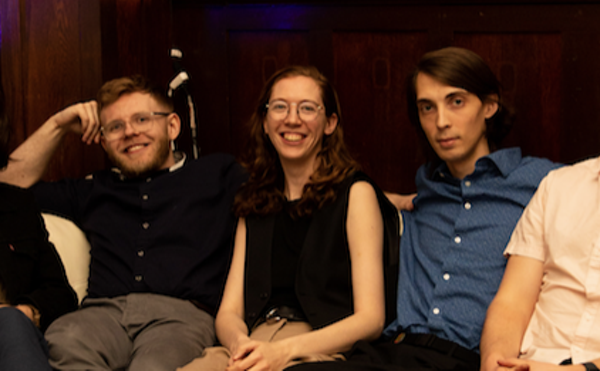X's John Doe and Exene Cervenka Explain How They've Kept Their Creative Juices Flowing
Group will play its classic punk tracks and new material on August 29 at House of Blues
By Jeff Niesel on Wed, Jun 14, 2023 at 7:04 am
[
{
"name": "Ad - NativeInline - Injected",
"component": "38482495",
"insertPoint": "3",
"requiredCountToDisplay": "5"
},{
"name": "Real 1 Player (r2) - Inline",
"component": "38482494",
"insertPoint": "2/3",
"requiredCountToDisplay": "9"
}
]
Formed in 1977, X quickly established itself as one of the best bands in the first wave of L.A.'s punk scene. Featuring singer Exene Cervenka, singer-bassist John Doe, guitarist Billy Zoom and drummer DJ Bonebrake, the band released its debut single, "Adult Books"/"We're Desperate," and then steadily toured and recorded. Rolling Stone rightly ranks X’s first two studio albums, Los Angeles and Wild Gift, among the top 500 greatest albums of all time.
The band continues to tour with the original line-up fully intact, and X’s current trek brings it to House of Blues on Tuesday, Aug. 29.
In 2020, X celebrated the 40th Anniversary of Los Angeles and then delivered a surprise release of Alphabetland, its first new studio album featuring the original line-up in 35 years. The group is currently working on new material.
In this recent conference call, Cervenka and Doe discuss the band’s remarkable career and their ability to keep producing compelling new music.
What’d you think of how your song “Poor Girl” is used in the latest Guardians of the Galaxy film?
Cervenka: Well, first of all, it’s very cool. I like superheroes and I like Marvel, so that is kind of a thrill. I haven’t seen the movie yet, but I will.
Doe: It’s great to be relevant. James Gunn, the director, has always used music to enhance his characters and give them a theme song. Some of it I like and some of it is “not that song!” To be included in that is a thrill. The reason I have to get off this call once it’s over is to see the movie. I haven’t seen it yet either. Exene, I will get back to you.
I think the film’s tone is a good match for X.
Doe: Yes, the movies are always snarky, and they’re always looking at the audience and breaking the fourth wall. That’s always fun.
You have been working on new music. Talk about when you started developing the new material?
Cervenka: We put out Alphabetland during the height of the pandemic. We couldn’t tour, and we waited so long to do a record, and then, everybody’s life got postponed. If that pandemic wouldn’t have happened, the record would have come out in a more timely fashion, and we would have toured more behind it. We could have just said, “Ok. We made a new record, and that’s that.” Because we couldn’t really say that, we have to make another record. We are working on songs, and they’re going very well. We did four of them live at the last set of shows. Everyone liked them a lot. I had people telling me they really liked them and that they fit in. I We have more confidence now that we did that last album and can write songs all day and come up with good ideas. We’re not worried or inhibited or thinking they won’t be as good.
Doe: At first, I was daunted. I thought, “Why? What? Who cares?” But that is what all artists go through even if you’re at the top and did the best record ever. I thought nobody would want to hear a new album. Once we started writing songs together, I thought oddly enough that they’re very catchy. This group of songs is much catchier than Alphabetland. That’s unexpected. I don’t know what happened. The choruses came together in a better way. It’s exciting to have new material. Then, you don’t feel like you’re just an oldies act, which we have never been. We haven't had the luxury of playing casinos and county fairs.
Cervenka: But that would be my dream come true. They’re my favorite things in the world.
Doe: To do that, we’d have to go back to 1981 to make “White Girl” an actual radio hit in order to do that. It’s probably a mixed blessing for Joan Jett or Blondie or other people from our era. They can play any time they want and get good money at those kinds of places. Then, you’re at some odd place in Wisconsin playing a country fair and thinking, “Holy shit!”
“Strange Life,” a new song with Robby Krieger, is one of my favorite tunes on the album. What’s the story behind it?
Doe: Robby texted me because we have each other’s number. He said something about wanting to put people on the guest list for a show. I wrote him back and told him he must have had the wrong “John.” I think he meant to text [his former Doors bandmate] John Densmore or someone like that. But because of that miscommunication, he came down to the studio. He played slide guitar so well on that song that we also put him on a poem called “All the Time in the World.” For “Strange Life,” we worked and reworked the lyrics; that's something that's very different about Alphabetland. We continued to work on the lyrics right up to the recording and sometimes during the recording session.
On a personal level, how have you evolved as an artist since X’s conception in 1977.
Cervenka: Maybe a college student could do a term paper on that, but I can’t talk about that. Are you kidding? That would be a really long answer. I was always more of a visual artist than a poet, but I don’t know. In some ways, [my approach to music] is the same, and in some ways, it’s totally different. I don’t analyze the reasons why.
Doe: Maybe I should say how Exene has changed, and she could say how I have changed. If anything, I’ve just become a lot more direct and economical. I’m also surprised at how little I knew but how convinced I was of what I thought I knew. That can be very humbling and sort of embarrassing, but that’s what you’re like when you’re 25 to 35 years old. You have a lot of views. I’m always amazed at how Exene continues to write as much as she does and how consistently great it all is. There are plenty of people who have a rush of the Romantic poet in them and then kind of rehash things, or it dries up and is not as good. The funny thing on this new stuff is that it’s easy for me to find music to it because the rhythm is so good.
What made you initially decide to share lead vocals duties?
Cervenka: You used the “d” word. You said “decide.” There were no decisions made. You showed up and did whatever you felt like doing. John was such a great singer and I had never sung in my life. I thought, “Why I am even here?” So it was better to take turns. [In hindsight,] it’s so smart. We didn’t realize we would live a long time. But now, I’m 67, and I wouldn’t want to sing the entire 90-minute set myself. It would kill me. I get to hang out half the time. When it’s my turn, I’m ready to go. We can switch back and forth and keep going forever that way.
Doe: I agree with that. There was ever anything premeditated or calculated about what we did.
Cervenka: People think we had an agenda or plan. That wasn’t at all what we were doing. That’s true for all those bands. It was minute-to-minute.
Doe: That’s true. It wasn’t so much that I didn’t think that I could sing everything all the time. I just didn’t want to. I would rather have a partner. Once it got going, we all realized it was unique. It also deflects a lot of that that ego/attention. You’re not the main attraction. There is more. We’re very fortunate in that we all have unique personalities and hold up an end of the table. That’s what a good band is about.
On a personal level, I tend to glamorize the punk scene from which you emerged. Was it really inspiring to play the L.A. punk clubs back then?
Doe: The struggle made it. You can idealize the struggle, but it was definitely a struggle. Nobody cared, and you had to do it on your own. That makes it more worthy. If you fight for something, then you believe it and love it more than if it’s just handed to you. I went to see Skating Polly last night here in Austin. There was a band that opened called Lord Friday the 13th. They didn’t give two shits about anything. They didn’t care if they would be played on the radio. All they wanted to do was go out there and do their thing and have a good time and let the audience have a good time. That’s what the L.A. punk rock thing was about. People say, “What is punk rock about?” It’s about freedom. It’s about not giving a shit. It’s not about being self-righteous.
You’ve toured really regularly post-pandemic. What keeps the band going nearly 50 years into its career?
Cervenka: Can I answer from Billy [Zoom]? Nobody has quit or died from drug overdoses. Basically, that is true. Success can be a problem. But we are still alive. If the Ramones were still alive, they’d still be playing and traveling in a van. You know they would. It’s a tragedy that they’re not here. Same with the Cramps. I would give anything to see the Cramps. It’s the luck of the draw. We’re lucky to be here. Overthinking things can really be a problem for an artist if you want to be this totally intuitive artist, and you don’t care what people think. Sometimes, you have to be smart enough to know what’s going on and how to keep doing it. It’s a combination of so many things. We’re on Fat Possum Records and have great management and good booking. We have a good bunch of people who really promote what we do and believe in us. From our accountant to our lawyer, they’re all fans. They do what they need to do to make sure we can keep playing. That is really amazing. In turn, we can help other people. It’s what happens when you do something long enough.
Doe: I would add to that that we still have creative juice. I don’t say that to brag, but I feel like we still want to create things and maybe that’s ambition or stick-to-it-ness. If it wasn’t for the fact that people came to see us, we wouldn’t do this. If there were 100 people, and we made $1000 a night, we probably wouldn’t do it. That’s not the case. We’re fortunate that we’re here and that people still give a shit. If they didn’t, nobody has that kind of determination. We make a good living and people love to see the band, and we love to play. We don’t sweat the small stuff. We’re probably better friends now than ever because we have been through so much together.
Coming soon: Cleveland Scene Daily newsletter. We’ll send you a handful of interesting Cleveland stories every morning. Subscribe now to not miss a thing.
Follow us: Google News | NewsBreak | Instagram | Facebook | Twitter
The band continues to tour with the original line-up fully intact, and X’s current trek brings it to House of Blues on Tuesday, Aug. 29.
In 2020, X celebrated the 40th Anniversary of Los Angeles and then delivered a surprise release of Alphabetland, its first new studio album featuring the original line-up in 35 years. The group is currently working on new material.
In this recent conference call, Cervenka and Doe discuss the band’s remarkable career and their ability to keep producing compelling new music.
What’d you think of how your song “Poor Girl” is used in the latest Guardians of the Galaxy film?
Cervenka: Well, first of all, it’s very cool. I like superheroes and I like Marvel, so that is kind of a thrill. I haven’t seen the movie yet, but I will.
Doe: It’s great to be relevant. James Gunn, the director, has always used music to enhance his characters and give them a theme song. Some of it I like and some of it is “not that song!” To be included in that is a thrill. The reason I have to get off this call once it’s over is to see the movie. I haven’t seen it yet either. Exene, I will get back to you.
I think the film’s tone is a good match for X.
Doe: Yes, the movies are always snarky, and they’re always looking at the audience and breaking the fourth wall. That’s always fun.
You have been working on new music. Talk about when you started developing the new material?
Cervenka: We put out Alphabetland during the height of the pandemic. We couldn’t tour, and we waited so long to do a record, and then, everybody’s life got postponed. If that pandemic wouldn’t have happened, the record would have come out in a more timely fashion, and we would have toured more behind it. We could have just said, “Ok. We made a new record, and that’s that.” Because we couldn’t really say that, we have to make another record. We are working on songs, and they’re going very well. We did four of them live at the last set of shows. Everyone liked them a lot. I had people telling me they really liked them and that they fit in. I We have more confidence now that we did that last album and can write songs all day and come up with good ideas. We’re not worried or inhibited or thinking they won’t be as good.
Doe: At first, I was daunted. I thought, “Why? What? Who cares?” But that is what all artists go through even if you’re at the top and did the best record ever. I thought nobody would want to hear a new album. Once we started writing songs together, I thought oddly enough that they’re very catchy. This group of songs is much catchier than Alphabetland. That’s unexpected. I don’t know what happened. The choruses came together in a better way. It’s exciting to have new material. Then, you don’t feel like you’re just an oldies act, which we have never been. We haven't had the luxury of playing casinos and county fairs.
Cervenka: But that would be my dream come true. They’re my favorite things in the world.
Doe: To do that, we’d have to go back to 1981 to make “White Girl” an actual radio hit in order to do that. It’s probably a mixed blessing for Joan Jett or Blondie or other people from our era. They can play any time they want and get good money at those kinds of places. Then, you’re at some odd place in Wisconsin playing a country fair and thinking, “Holy shit!”
“Strange Life,” a new song with Robby Krieger, is one of my favorite tunes on the album. What’s the story behind it?
Doe: Robby texted me because we have each other’s number. He said something about wanting to put people on the guest list for a show. I wrote him back and told him he must have had the wrong “John.” I think he meant to text [his former Doors bandmate] John Densmore or someone like that. But because of that miscommunication, he came down to the studio. He played slide guitar so well on that song that we also put him on a poem called “All the Time in the World.” For “Strange Life,” we worked and reworked the lyrics; that's something that's very different about Alphabetland. We continued to work on the lyrics right up to the recording and sometimes during the recording session.
On a personal level, how have you evolved as an artist since X’s conception in 1977.
Cervenka: Maybe a college student could do a term paper on that, but I can’t talk about that. Are you kidding? That would be a really long answer. I was always more of a visual artist than a poet, but I don’t know. In some ways, [my approach to music] is the same, and in some ways, it’s totally different. I don’t analyze the reasons why.
Doe: Maybe I should say how Exene has changed, and she could say how I have changed. If anything, I’ve just become a lot more direct and economical. I’m also surprised at how little I knew but how convinced I was of what I thought I knew. That can be very humbling and sort of embarrassing, but that’s what you’re like when you’re 25 to 35 years old. You have a lot of views. I’m always amazed at how Exene continues to write as much as she does and how consistently great it all is. There are plenty of people who have a rush of the Romantic poet in them and then kind of rehash things, or it dries up and is not as good. The funny thing on this new stuff is that it’s easy for me to find music to it because the rhythm is so good.
What made you initially decide to share lead vocals duties?
Cervenka: You used the “d” word. You said “decide.” There were no decisions made. You showed up and did whatever you felt like doing. John was such a great singer and I had never sung in my life. I thought, “Why I am even here?” So it was better to take turns. [In hindsight,] it’s so smart. We didn’t realize we would live a long time. But now, I’m 67, and I wouldn’t want to sing the entire 90-minute set myself. It would kill me. I get to hang out half the time. When it’s my turn, I’m ready to go. We can switch back and forth and keep going forever that way.
Doe: I agree with that. There was ever anything premeditated or calculated about what we did.
Cervenka: People think we had an agenda or plan. That wasn’t at all what we were doing. That’s true for all those bands. It was minute-to-minute.
Doe: That’s true. It wasn’t so much that I didn’t think that I could sing everything all the time. I just didn’t want to. I would rather have a partner. Once it got going, we all realized it was unique. It also deflects a lot of that that ego/attention. You’re not the main attraction. There is more. We’re very fortunate in that we all have unique personalities and hold up an end of the table. That’s what a good band is about.
On a personal level, I tend to glamorize the punk scene from which you emerged. Was it really inspiring to play the L.A. punk clubs back then?
Doe: The struggle made it. You can idealize the struggle, but it was definitely a struggle. Nobody cared, and you had to do it on your own. That makes it more worthy. If you fight for something, then you believe it and love it more than if it’s just handed to you. I went to see Skating Polly last night here in Austin. There was a band that opened called Lord Friday the 13th. They didn’t give two shits about anything. They didn’t care if they would be played on the radio. All they wanted to do was go out there and do their thing and have a good time and let the audience have a good time. That’s what the L.A. punk rock thing was about. People say, “What is punk rock about?” It’s about freedom. It’s about not giving a shit. It’s not about being self-righteous.
You’ve toured really regularly post-pandemic. What keeps the band going nearly 50 years into its career?
Cervenka: Can I answer from Billy [Zoom]? Nobody has quit or died from drug overdoses. Basically, that is true. Success can be a problem. But we are still alive. If the Ramones were still alive, they’d still be playing and traveling in a van. You know they would. It’s a tragedy that they’re not here. Same with the Cramps. I would give anything to see the Cramps. It’s the luck of the draw. We’re lucky to be here. Overthinking things can really be a problem for an artist if you want to be this totally intuitive artist, and you don’t care what people think. Sometimes, you have to be smart enough to know what’s going on and how to keep doing it. It’s a combination of so many things. We’re on Fat Possum Records and have great management and good booking. We have a good bunch of people who really promote what we do and believe in us. From our accountant to our lawyer, they’re all fans. They do what they need to do to make sure we can keep playing. That is really amazing. In turn, we can help other people. It’s what happens when you do something long enough.
Doe: I would add to that that we still have creative juice. I don’t say that to brag, but I feel like we still want to create things and maybe that’s ambition or stick-to-it-ness. If it wasn’t for the fact that people came to see us, we wouldn’t do this. If there were 100 people, and we made $1000 a night, we probably wouldn’t do it. That’s not the case. We’re fortunate that we’re here and that people still give a shit. If they didn’t, nobody has that kind of determination. We make a good living and people love to see the band, and we love to play. We don’t sweat the small stuff. We’re probably better friends now than ever because we have been through so much together.
Coming soon: Cleveland Scene Daily newsletter. We’ll send you a handful of interesting Cleveland stories every morning. Subscribe now to not miss a thing.
Follow us: Google News | NewsBreak | Instagram | Facebook | Twitter
SCENE Supporters make it possible to tell the Cleveland stories you won’t find elsewhere.
Become a supporter today.
About The Author
Jeff Niesel
Jeff has been covering the Cleveland music scene for more than 20 years now. And on a regular basis, he tries to talk to whatever big acts are coming through town, too. If you're in a band that he needs to hear, email him at [email protected].
Scroll to read more Music News articles
Newsletters
Join Cleveland Scene Newsletters
Subscribe now to get the latest news delivered right to your inbox.

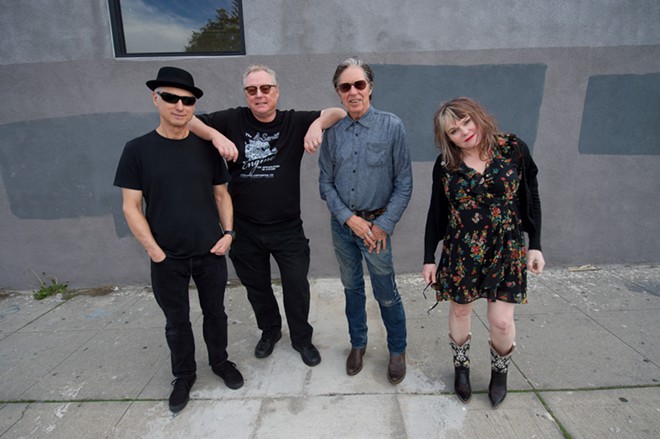


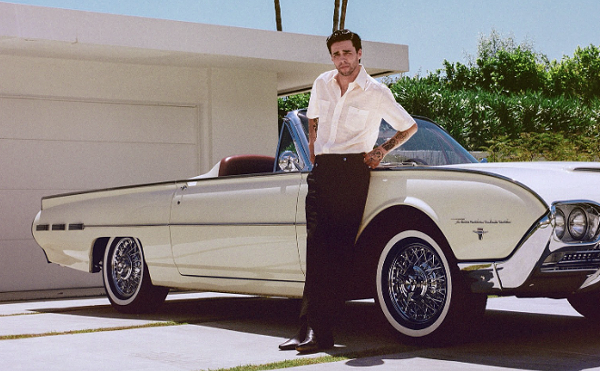
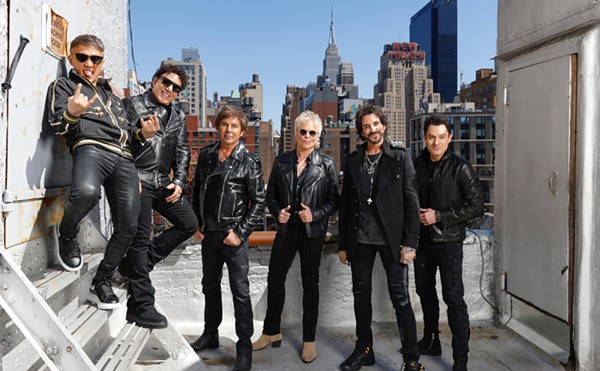
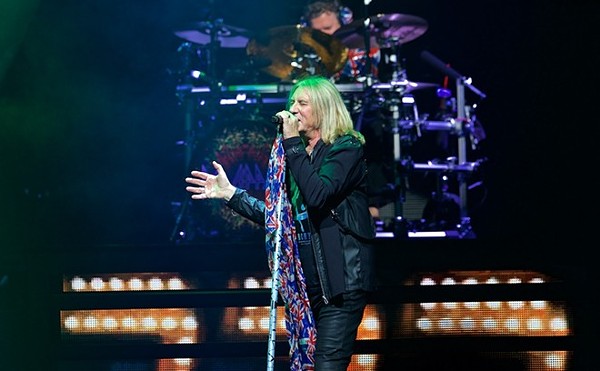
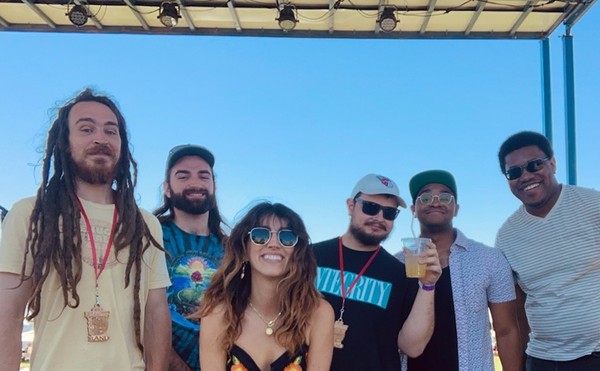
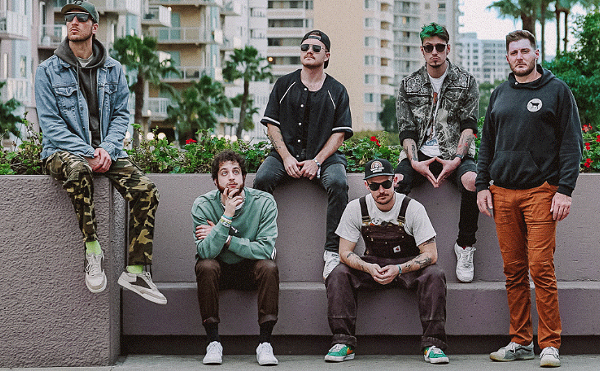
![Mourning [A] BLKstar.](https://media1.clevescene.com/clevescene/imager/clevelands-mourning-a-blkstar-returns-with-sophisticated-suite-of-new-songs/u/golden-s/44709952/screen_shot_2024-07-12_at_10.18.29_am.png?cb=1720806957)
